What is your position with Ellipsis, and what does a typical day look like for you?
My position here at Ellipsis is that I’m a youth care worker. A typical day involves waking up clients before school, making sure they’re getting and taking their medication, and making sure they complete their morning expectations. So that’s for sure taking care of morning hygiene — and that they’re completing their morning room chores as expected. And once that's all completed, we'll get to our breakfast and get them sent off to school.
How long have you worked here, and what initially drew you to Ellipsis?
This will be going on year five, and what initially drew me to Ellipsis was the fact that I could help kids grow and develop. I feel like I have a good connection with kids.
Have you had any other roles at Ellipsis? How has your journey within the organization shaped your perspective on the need for the programs and services the organization provides?
Being a youth care worker has been my only role at Ellipsis. I started on the nighttime shift then transitioned after a couple years when I was given the opportunity to work the morning shift.
Being on the night shift for so long helped me in understanding our clients’ needs and what services are provided to help them. We can help them navigate those services better because we have a better understanding of their situation, their case. When we build that relationship, we can also help them practice basic life skills that no one else might be teaching them, like personal hygiene, table manners and offering perspective on what’s happening in our community when we go on trips outside of our campus.
Please share a story about an experience that reaffirmed why you do this work. What made it so meaningful?
There was once a client who had a difficult time physically de-escalating, and I was one of the staff helping as they were having challenges. So, my approach is to be soothing and calm, and I make sure they can feel that right away.
As soon as I felt their body kind of drop in a calming way, that further let me know that I was helping them. After the situation, the Ellipsis team asked them who they wanted to talk to. And out of everyone, and me not knowing this person well and just coming into the situation, they chose to speak with me — and my helping them de-escalate was my first interaction with this client. So, I felt kind of special in that moment, knowing I was able to bring some type of benefit to that person experiencing that challenging situation.
What are some of the biggest challenges you face in this job, and how do you overcome them?
I would say the biggest challenge for me is knowing that most of these kids have experienced some type of trauma, and it was bad enough that they’re coming into the shelter.
The best way for me to help them overcome those traumas is just building that rapport with them, taking the time to get to get to know them and just building that relationship. It’s very important to the client, and I also benefit in return. Hopefully, that will then return to the rest of the staff, as well.
What’s one thing you wish more people understood about the work you do?
I wish more people understood that we're building these clients up not only for their future but also for our society and the community's future. We're not just here to “babysit” these kids but to help them make better life decisions now and practice skills so a better life is available to them later.
If you could describe your job in three words, what would they be and why?
One — which is a little challenging — would be patience. Taking the time to understand the clients.
My other one would be consistency. Basically, mean what you say and follow through because these kids have been told the glitter and gold, so they want to see if you actually pay attention and do what you say you’re going to do.
My last word would be communication — just talking with them. Getting to know them is important, what they like. And maybe having conversations not always directed toward their trauma, just something basic.
What’s one piece of advice you’d give to someone considering a career in youth services or mental health support?
These kids are going through some trauma, and people who work in this field have to understand that. Yeah, you also have a personal life, but once you hit the doors here at work — there's another focus. That focus has to be on the clients you're serving for those however many hours you’re working until you leave. So, that would be my biggest piece of advice, just trying to leave your personal life out of work.
What’s one thing about Ellipsis that makes you most proud to be part of the team?
I would say it’s the consistency and the support you get whenever you need it. There's an open-door policy in which all staff, all higher-ups and managers welcome people to talk about what’s going on. And they listen as if they were in your position, in your shoes.
Outside of work, what’s something that brings you joy?
I would definitely have to say I'm a big, big football person. I’ve loved football ever since I can remember. I’m currently coaching at East High School and even doing some football training with other high school athletes. Seeing my athletes make progress is kind of like seeing people here make progress. It’s an uplifting feeling for me. Football actually helps me, too. It helps distract me once I get off work. So that also plays hand in hand. Yeah, football is my biggest joy.
